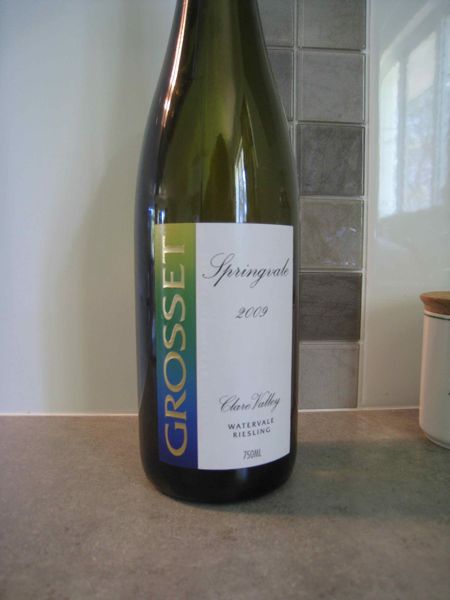So, what’s the difference between the two vineyards?
Springvale vineyard sits at the highest point in the north-eastern corner of the Watervale sub-region with a thin crust of rich red topsoil over soft limestone, grey slate and shale. That soil produces sturdy vines, with chunky bunches of big berries, and lime green grapes that are bigger than those on the Polish Hill vines. The resulting wines, to quote the Grosset website are dry with a mineral edge, savoury, yet with a noticeable fullness and richness and pronounced riesling fruit flavour.
In contrast, the Polish Hill vineyard has sandy loam over clay, gravel, shale and slate on a ridge running north from Mount Horrocks, 460 metres above sea level. The soil isn’t very fertile, so the vines and berries are smaller and more concentrated than those of Springvale. As a result, you’d expect the Polish Hill to be leaner and more austere than its Watervale counterpart. Not that we’ll be doing too many comparative tastings, of course.
We tried the Springvale first, in honour of Madam’s sister’s birthday. Any excuse will do, and we’d given the bottle a whole two days to get over the road transport trauma. We lined it up with pan-fried mixed reef fillets, simple boiled potato, some broccoli and a couple of cherry tomatoes from the garden.

More...

